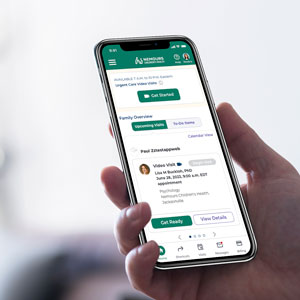Pacemakers, Defibrillators & Implanted Devices
- About Us
- Our Care
- Your Visit
Complete Cardiac Device Care for Kids and Young Adults
Children with certain heart problems may need specialized devices implanted under the skin to help manage irregular heart rhythms and heart pumping function.
Pacemakers regulate the heart and maintain a steady rhythm using low-energy electrical pulses. Implantable cardiac defibrillators (ICDs) use higher-energy pulses during life-threatening events like cardiac arrest. Other implanted cardiac devices can improve blood flow, treat heart failure and allow doctors to monitor heart rhythm over extended periods of time.
Nemours Children’s expert electrophysiology and arrhythmia team is part of recognized, award-winning heart centers in Delaware and Florida. We use innovative, minimally invasive approaches to implant devices in even the smallest babies. This can mean fewer, smaller cuts on the outside of the skin for an easier recovery.
We offer the latest cardiac device technologies and equipment like leadless devices (without wires), and devices that can be placed just under the skin. We can keep track of your child’s heart from our offices and adjust devices without a visit.
Two Leading Pediatric Heart Centers
Our heart centers offer highly advanced, integrated care just for kids and young adults with congenital heart disease. Learn about our focused programs, innovative research and exceptional outcomes.
Pacemakers can help kids with certain types of arrhythmia. Learn all about arrhythmias and treatment from the experts at Nemours KidsHealth®.
How does the heart beat? See how the heart and circulatory system work.
- echo
- Genetic Counseling
Here for Your Family, for the Long Term
Nemours heart team is here for the long term, managing your child’s condition and watching their device closely as they grow. From birth to adulthood, we help your child do what they love at every age and stage.

Our heart specialists are experts at implanting pacemakers using catheters, or thin tubes. This can mean an easier recovery for your child.
We make life a little easier with remote monitoring, video visits and routine appointments at locations that may be closer to home.
Our complete care includes therapies to strengthen your child’s spirit and live to their highest ability.
Nemours is researching children’s heart disease and sharing what we know so that kids everywhere can benefit.
Here for Your Family, for the Long Term
Nemours heart team is here for the long term, managing your child’s condition and watching their device closely as they grow. From birth to adulthood, we help your child do what they love at every age and stage.

Our heart specialists are experts at implanting pacemakers using catheters, or thin tubes. This can mean an easier recovery for your child.
We make life a little easier with remote monitoring, video visits and routine appointments at locations that may be closer to home.
Our complete care includes therapies to strengthen your child’s spirit and help them develop to their highest ability.
We’re researching children’s heart disease and sharing what we know so that kids everywhere can benefit.
Meet the Team
Nemours pacemaker and implanted devices teams are experienced and focused on your child's healthiest future. Meet them now.
-
Joel D. Temple, MD
Cardiology Director, Electrophysiology; Associate Chief, CardiologyPrimary Office
Wilmington, DE
-
Bahram Kakavand, MD
Cardiology Director, Cardiopulmonary Exercise Lab-OrlandoPrimary Office
Orlando, FL
Conditions & Treatments
We see many conditions — far too many to list here. The conditions we treat vary depending on the location and providers selected. Don’t see a condition listed? Call us.
Related Specialties & Programs
Empowering You to Care for Your Child at Home
The Nemours inpatient heart care team helps you prepare for and manage your child’s care at home. We make sure you have everything you need, including training on devices, equipment and medicines before you leave.


Convenient Follow-Up Appointments by Video
We offer follow-up appointments through scheduled, live video visits. You can avoid waiting rooms and save travel time. Ask your doctor if this is an option for your family.




